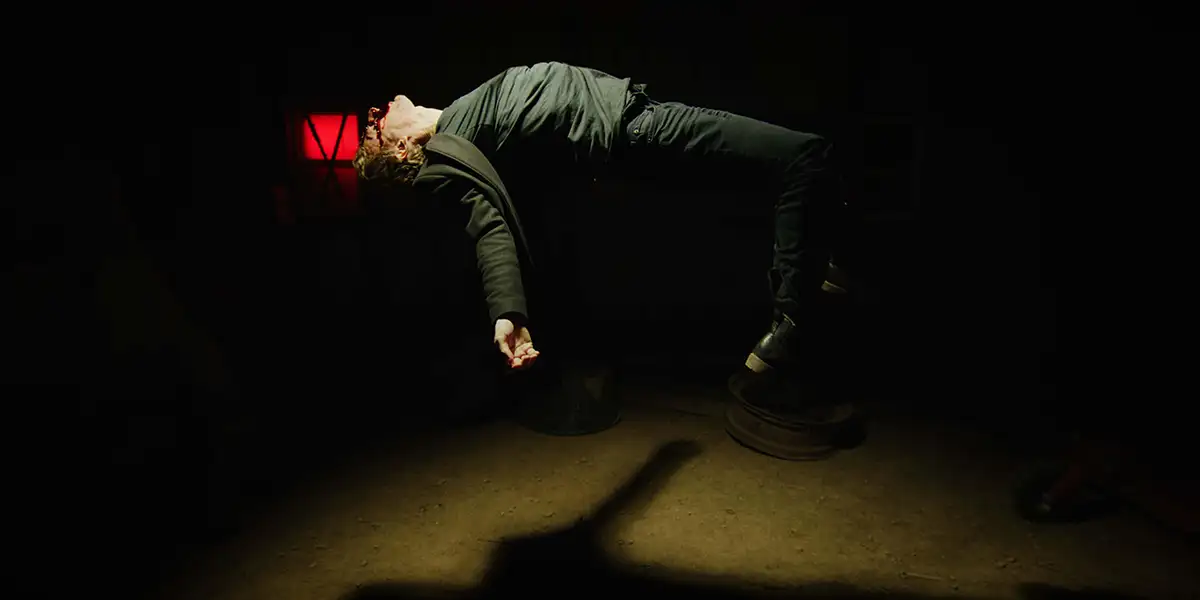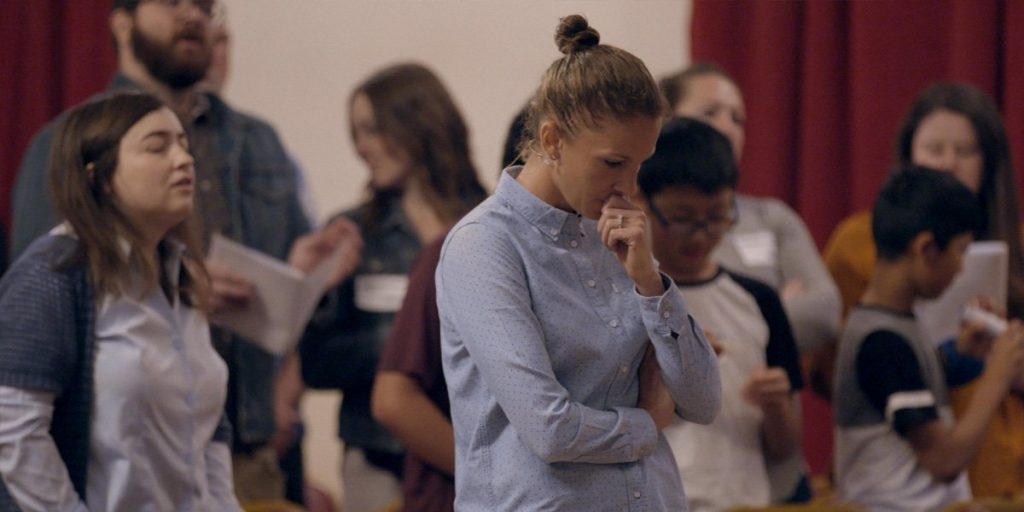Kristine Stolakis’ debut documentary Pray Away details the horror and harm inflicted by advocates of so-called conversion therapy upon LGBTQ+ people in their attempt to ‘pray the gay away’.
Executive produced by American Horror Story co-creator Ryan Murphy and Jason Blum, – of Blumhouse Productions, known for films like Jordan Peele’s Get Out and James Wan’s Insidious – director Kristine Stolakis’ debut documentary Pray Away focuses on a different kind of horror than one might usually associate with those names: the prevalence of LGBTQ+ ‘conversion therapy’ in the United States.
The central focus of Stolakis’ film are former prominent figureheads of the so-called ‘ex-gay movement’, bolstered by Christian-right organisations like Exodus International, who promised to rid people of their homosexuality through aggressive religious intervention and not-always-licenced psychoanalytic practices. It charts how a meeting between a group of young men in the 1970s, who struggled with being gay within their Evangelical churches, led to one of the largest and most controversial conversion – or ‘reparative’ – therapy providers in the world. Key contributors include Julie Rodgers, a survivor whose years within a conversion residential program inspired a forthcoming book; Yvette Cantu Schneider, a bisexual woman who was once a prominent spokesperson for far-right advocacy group the Family Research Council; John Paulk, at one point the ‘most famous ex-gay in America’; Michael Bussee and Randy Thomas, the co-founder and final vice-president respectively of Exodus before its dissolution in 2013, and as a counterpoint, Jeffery McCall, the founder of the Freedom March who self-identifies as ‘formerly transgender’ and continues to advocate for the healings of God and against LGBTQ+ legislation.
Pray Away is fairly linear in its narrative, following the boom of conversion therapy from the 1970s onwards, the manner in which it moved from a religious to a highly-politicised movement during the 2003 US elections, the speaking out of ex-members and survivors, as well as the disheartening reality that the practice continues to thrive. It’s estimated that over 700,000 Americans have gone through such therapies, and Stolakis uses the film as a means in which to highlight the immeasurable harm such practices have had on those who endured it, dedicating the film ‘especially’ to those who have not survived the resulting trauma.
The message of groups like Exodus is that, fundamentally, being LGBTQ+ is wrong, but they can help you overcome it. Being anything but straight is shameful yet changeable, as there is an explanation for the ‘gayness’: be that it’s a mental illness, a symptom of abuse or bad parenting, or – a personal favourite – the result of being exposed to the occult. For the logical, rational and empathetic viewer, the pitch is ridiculous, offensive and frightening. But the film works hard to help the viewer understand how someone desperate to keep hold of their religious faith would fall victim to it. Stolakis’ stance is fairly clear, but the film allows former staunch supporters like John Paulk and Yvette Cantu Schneider the chance to describe the internal battle they deliberately chose to ignore during their years within the ‘anti-gay movement’, as well as documenting the work Jeffery McCall does to ensure its continuation.
But, ultimately, the purpose of Pray Away is to convey just how harmful conversion therapy is. One of the film’s most poignant moments comes when Julie reads an excerpt from her book, detailing a period of self harm, whilst her partner tenderly rubs a hand – upon which sits an engagement ring – over the skin she disfigured. It’s a reminder that the psychical and psychological ramifications of conversion therapy are often something survivors are, devastatingly, not able to endure. Randy Thomas recounts how a gay man once asked him if he knew he had ‘blood on his hands’, and his response was that he was ‘scared to look’ at them. The pain and suffering of vulnerable people who fell victim to these abhorrent practices is a heavy burden for people like Randy and Julie, whose wedding acts as the film’s redemptive finale. But the film makes a point of emphasising that their apologies and regret are not enough; it’s something they continue to atone for through advocacy and support systems, even as the long-discredited practice continues on.
The film is well-structured, tightly edited with a mixture of archive footage, interviews and excerpts from its subjects’ everyday lives, and is able to clearly and concisely make the point that conversion therapy is extremely harmful and condemnable, whilst offering the perspective of a firm believer from the ‘other side’, whose fervour and reverence whilst praying borders on zealous. Stolakis’ documentary debut is an affecting account of the damage conversion therapy does and a reminder that there is nothing, absolutely nothing, shameful about an LGBTQ+ identity, and that one cannot simply ‘pray the gay away’.
Pray Away will be released globally on Netflix on August 3, 2021.

 loudandclearreviews.com
loudandclearreviews.com
